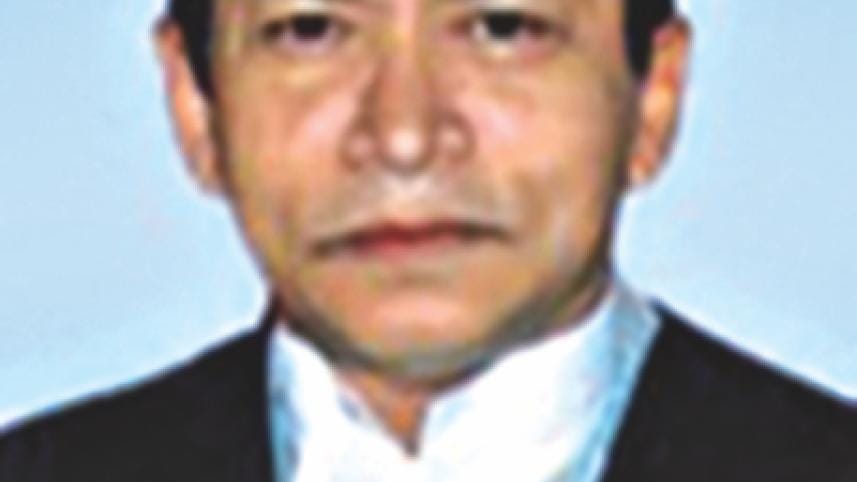Trials stumble on outdated laws

Many of the country's laws have become obsolete and are of little effect in doing investigation and delivering justice in modern times, Chief Justice Surendra Kumar Sinha said yesterday.
Referring to the sensational murder of Sohagi Jahan Tonu, he said the crime that happened in Comilla was committed in a “scientific, modern way”.
This crime cannot be investigated and tried under the Code of Criminal Procedure (CrPC), which was written in 1898.
The investigation should be done in a “digitalised way, [following] new methods.”
He also pointed out that the “obsolete mentality, the mentality of police officers” were not fit for conducting a proper investigation in the case.
The CJ was addressing the launching of two books -- “Bangladeshe Ainer Sangskar o Ain Commission” and “Selected Writings on International Law, Constitutional Law and Human Rights” -- by Law Commission member Prof M Shah Alam at Dhaka University's Senate Building.
The chief justice criticised lawmakers for their “lack of interest” in laws. “The biggest thing about our lawmakers is their ignorance about laws.”
Mentioning that he himself is ignorant about some issues, he said lawmakers showed little interest in studying and concentrating on laws.
New laws and constitutional amendments are not discussed in parliament, he said, adding: “When we bring the parliamentary debates for a better understanding of the act, we find nothing [in the debate].”
Talking about the trial process in general, he said, trials are now being conducted with the help of different government circulars. This creates additional pressures on the judiciary and results in discrimination.
About the massive backlog of cases and the lengthy legal procedures, he said, “Nobody is getting justice. In my knowledge, the second, third generation of the person who goes to court, may get the result [verdict]. Is this justice? This is mockery, I feel.”
A total reform of the system is needed to reduce the backlog of cases and people's harassment in court.
Replying to a comment by Prof Abul Barkat about the judiciary, the chief justice said irregularities were taking place in every nook and cranny in the country where the judiciary was not from a different island.
“The judges of this country are our children. The lawyers of this country are part of the society.”
So, in no way it can be expected that all the people in the judiciary are angels, he said, adding that some irregularities could be found in 5-10 percent cases.
Speaking at the programme, National Human Rights Commission Chairman Prof Mizanur Rahman criticised the Election Commission for not using its executive power to prevent polls-time violence, which killed at least 31 people in the two phases.



 For all latest news, follow The Daily Star's Google News channel.
For all latest news, follow The Daily Star's Google News channel.
Comments